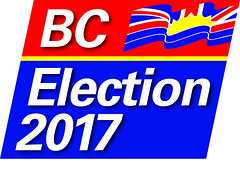One in a series of Black Press B.C. election coverage leading up to May 9
 As much as the liquefied natural gas industry (LNG) was a hot-button issue in the 2013 B.C. provincial election, the topic has persisted just as much into 2017.
As much as the liquefied natural gas industry (LNG) was a hot-button issue in the 2013 B.C. provincial election, the topic has persisted just as much into 2017.
Nineteen B.C. LNG projects are currently announced and under various stages of the certification process.
Eighteen of the proposals have been approved by the National Energy Board, and nine environmental assessments are completed while five are underway.
Five LNG proposals are situated in the Vancouver and Vancouver Island areas, with 14 more proposed along the North Coast of B.C. from Kitimat to Prince Rupert to Stewart, and many communities in between.
B.C. Liberal Party
The B.C. Liberal Party is in favour of developing the LNG industry in B.C. In the party platform, the BC Liberals state that the party is looking to take advantage of the vast reserves of natural gas in the northeast part of the province, as well as ease other countries off of fuels that contribute larger amounts of greenhouse gases.
READ: Woodfibre LNG to be first LNG plant built in B.C.
The party also states that “independent experts” expect to see an increase of global demand of LNG of 50 per cent by 2040.
The BC Liberals stress that $20 billion has already been invested by LNG proponents in B.C. and state the province has one plant in operation, one plant ready for construction and 63 pipeline agreements with First Nations around the province.
READ: LNG benefits agreement worth $144.5 million
The party states that it will work to get three LNG facilities moving to construction by 2020.
“Done right, LNG could be one of the least problematic cargoes, yet pay for locally based incident response capacity that actually increases production from all of the existing traffic and creates good, local jobs,” North Coast BC Liberal candidate Herb Pond told Black Press.
“LNG could also be a much cleaner burning and safer fuel source in ferries and power plants. Finally, there are substantial opportunities in negotiating Impact Benefit Agreements, or similar arrangements that provide revenue streams, funding for community assets like swimming pools, or training and employment.”
BC Liberals leader Christy Clark said that the party is “absolutely determined” to bring LNG to B.C.
“I have not devoted five and a half years of my life to making sure this happens, to give up now,” Clark said in January.
B.C. Green Party
The B.C. Green Party does not support the development of the LNG industry in B.C., claiming that it contributes to a “sunset industry of fossil fuels” that should be avoided if the province is to meet its climate action targets.
Of the four most populous provinces in Canada, only British Columbia is projected to increase its emissions by 2030, and the development of LNG and natural gas pipelines only reinforce those emissions, according to the Green’s platform.
“Climate change is not just an environmental issue. Acting on climate change is about positioning B.C. to succeed in the emerging economy of the future and the world that we will leave for our children.”
On the North Coast, Green Party candidate Hondo Arendt said that the party is against the development of LNG in his riding and abroad.
“The Green Party does not support the construction of LNG terminals on the North Coast … I think that anyone opposed to LNG development has a pretty clear choice in this election as both the Liberals and NDP support moving ahead with multiple North Coast projects,” Arendt said.
“LNG has done a good job of selling itself as the green fossil fuel, but it’s quite deceptive in that sense. If you’re actually just concerned about climate change and greenhouse gases, then natural gas is probably worse than oil or coal. It’s often pointed out [LNG] releases less carbon, but not that it releases almost 100 per cent of the methane.”
B.C. NDP
The B.C. NDP Party takes an individualistic approach with each LNG project, stating that LNG projects in B.C. must meet certain conditions.
The four conditions include that projects must offer jobs and training for B.C. residents – particularly local people near the projects, that B.C. residents must get a fair return for the province’s resources, that projects must secure full partnerships with area First Nations, and that they must meet high environmental standards based on a “made-in B.C.” assessment.
The NDP supports Woodfibre LNG, the project with board authorization to move ahead in construction, along with full environmental certification approval, but have rejected Pacific NorthWest LNG in its current design due to concerns over nearby salmon habitat and some First Nations opposition.
READ: North Coast reacts to LNG approval
Market conditions also have to be right, said NDP leader John Horgan.
“We can’t force what won’t work. If the market’s not there for the product, people aren’t going to buy it. We can’t force people to take our gas and I don’t believe, along the way, we should have a government that’s going to give away the store just to get a shovel in the ground,” he said.
North Coast incumbent NDP candidate Jennifer Rice said she would support LNG in the area, if done right.
“There is definitely an opportunity for a successful LNG project in our area, but the siting of these projects is critical to the protection of our land, air, water and health of local communities.
“The site proposed by Petronas (Pacific NorthWest LNG) is particularly challenging. The same project on a different site could face far fewer challenges,” she said.
